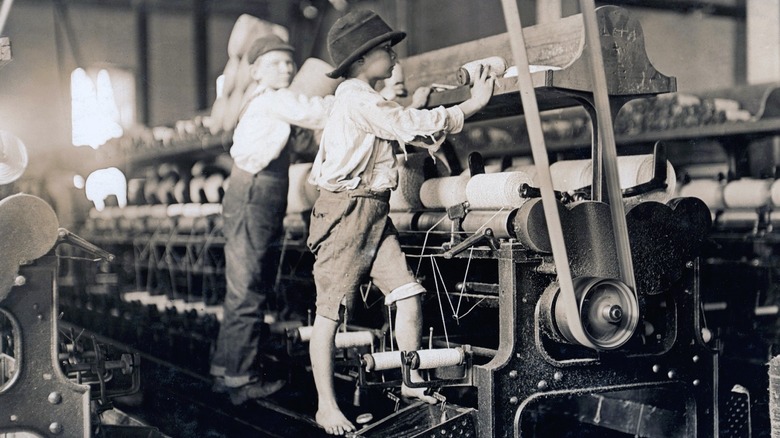Inside The Time Paris Had A Baby Lottery
Raising money via raffles or selling candy is nothing out of the ordinary. But in 1911, a foundling hospital in Paris took this concept a little too far and decided to raffle off babies (via Time Magazine). That's right — real human children. Referred to as "loterie de bébés" in French, the idea was to find abandoned children a home while also raising money for the hospital. Per Mental Floss, the hospital was not an actual hospital and was more of a children's home or orphanage.
A 1912 article in Popular Mechanics writes that the hospital consulted with authorities before holding the lottery. It seems they had no qualms about it, and the lottery proceeded. It was a complete success, and the funds raised were divided amongst various charities. In addition, the winners were vetted to see if they were fit to be adoptive parents. Needless to say, something like this would never be feasible in modern times. Deemed quirky and a bit of fun, the story itself was not considered troubling for its time, as most children in the early 20th century were exploited and mistreated.
The babies who were raffled off were considered lucky
According to Time Magazine, childhood abandonment was a major issue in 1911. Instead of going to an orphanage, some children were forced to work in factories under dangerous conditions or live on the streets, where they would often freeze or starve to death. Likewise, they were often abused (via The Vintage News). Of course, this is a problem that started long before the 1900s. Per the University of Kent, abandoned babies in ancient Rome were left in specific sites to die or survive and become slaves.
Thus, the government-run orphanages that were created in the 17th and 18th centuries were game-changers. They were not perfect, but they at least offered shelter and food for children who would otherwise be on their own. Moreover, some provided training for the children to learn a trade that they could use to make a living once they left the orphanage. Simply put, it was a better existence than having to work in a factory with horrendous conditions.
This leads back to the foundling hospital in Paris. Although viewed as unorthodox and unethical today, it believed it was doing the right thing by raffling off babies (via Mental Floss). It was a way of giving these children the possibility of a better life and prospective parents who wanted them. Despite its achievements, it was the last known baby lottery in history.

